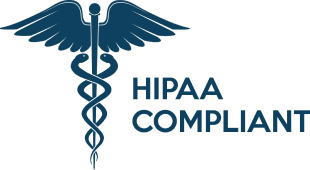Sky-High Problem: How Digital Healthcare Apps Could Get the Airline Industry Back on Cloud Nine
To watch the webinar that inspired this blog post, please go here.
The COVID-19 pandemic might well be the most significant event of our lifetime, sending the economy into global turmoil. Within this, hardly any industry has been impacted to a greater extent than airlines and hospitality and overseas travel. At least half of the planes in the world are currently grounded, hotels and other short-term hospitality services report an over 50% decrease in bookings, with millions of reservations cancelled… Several major airlines are relying on government grants and loans to get them through the crisis, while those that are still sending flights out have cut their schedules for May and June by 90%.
Doug Parker, CEO of American Airlines has recently voiced the thoughts of the industry, and posed the question that’s on everyone’s minds. “Our revenues are down 90% on a year-over-year basis and they’ve been that way now for a few weeks. The real question is how long you stay at the bottom and when do we begin to recover. I don’t think I know that better than anybody else.”
Could Public Health Monitoring Provide a Glimmer of Sunlight?
The truth is that no one can imagine when recovery will begin, with consumers nervous to even think about air travel before 2021, at the earliest. Airlines are attempting to incentivize air travel with bargain basement ticket prices, flexible cancellation policies, and anything else in their arsenal. Hospitality giants, such as Airbnb, Expedia, Booking.com and others are providing unheard of deals to try and provide some reassurance to the small amounts of travellers that are still able to travel – but these ideas are not real answers.
Despite all of this doom and gloom, the beginnings of a new path are already being glimpsed in the travel,airline and hospitality industries, a way to implement solutions through health monitoring tools for preventing the spread of any viruses at the airports and hotels as well as in close quarters during a flight, and hotels visits and when crossing borders into a new country on arrival.
Emirates has become the first airline to introduce on-site rapid testing for COVID-19 to all passengers from Dubai, with blood tests done at check-in, and results available within 10 minutes. Alongside other protective measures, this is allowing the airline to continue to remain in business, without threatening the health and safety of passengers or staff.
A Safe New World through Digital Healthcare Technology
It might seem unrealistic to think that on-site rapid testing could become the norm, but this is not the first time that air travel has gone through a major transformation. Consider what airport security was like prior to 9/11, and what it’s like now. Passengers are happy to have the extra layer of security, including full body scanners where necessary, if it means that they can have peace of mind against the threats of terrorism.
Now consider a new level of protection, not for what’s inside your luggage, but for what’s inside your body.
Here are a few options for the kind of checks, measures and system changes that we can envisage happening in order for the airline and hospitality industry to get back on its feet:
- Reinstating the idea of entry visas for countries where COVID-19 rates are still high, only allowing entry to the destination country on acceptance of a clean bill of health.
- On site health status testing at check-in or at the point of boarding a plane, or throughout the airport, via medical kiosks or specially dedicated personnel
- Airlines and hospitality services adding health monitoring features to their apps and asking people to run a quick health check during the online check-in process that they already require
- Protective measures inside the plane, hotel or rental accommodation, such as a limit on the number of passengers, or making it mandatory for passengers to wear gloves or masks
Such measures may be connected with immigration check points, so that just as you cannot board a flight to certain countries if you do not have a valid visa in your passport, you cannot board a plane if you do not have a clean bill of health. Immigration checks may also involve having your health status scanned, just as they currently take a photo or scan fingerprints.
The better or more advanced the technology, the harder these medical checks will be to fake. While someone could take Advil or Tylenol to lower their temperature two hours before a flight or a hotel check-in vital signs such as SpO2 and respiration rate are far harder to falsify.
Digital Healthcare Can Lead the Way
These ideas may sound futuristic, but the capabilities are already out there, facilitating airports and immigration or border check-points in creating a safer way for passengers to embrace travel. In many cases, formal programs just need to be put into place.
Consider the recent announcement by Google and Apple, to enable contact tracing for COVID-19 patients, so that members of the public know that they have been exposed. This could easily be leveraged to support airports, airlines and hospitality services by integrating this technology with the current validation processes.
A new study published in the Journal of the American Medical Association on April 22nd 2020 shares what doctors have discovered in New York State’s largest health system, and complicates the features of the technology that the public needs. Prof Karina Davidson said, “70 percent of the patients sick enough to be admitted to the hospital did not have a fever. Fever is currently listed as the top symptom of COVID-19 by the CDC, and for weeks, many testing centers for the virus turned away patients if they did not have one,”
While many airports may begin with kiosks or ad-hoc personnel completing passenger testing through a questionnaire or a temperature check, the industry needs something a lot more accurate, remotely applicable, and consistent to quell fears and truly limit the spread of viruses like COVID-19. It’s clear that not all patients will show regular symptoms like fever, and we need to be ready for all potential healthcare threats, even after the Coronavirus pandemic has passed.
Binah.ai’s remote vital signs digital healthcare app can show the earliest signs of deterioration in a passenger, even before they have any visible symptoms of the illness that they are carrying. From a simple mobile app on any device with a camera, airlines could have accurate, real-time vital signs such as oxygen saturation, heart rate, and respiration in under a minute.
In just weeks, we’ve gone from being part of the golden age of travel to 93% of people living in countries with travel bans. Once the danger of the Coronavirus has lifted, we may be looking at a new era of airline transport and hospitality, and we will need to be ready for anything. With the support of a combination of the latest digital healthcare technologies and innovation, and a continued drive to come together to fight whatever healthcare crisis can come our way, we see blue skies ahead.

 close
close





